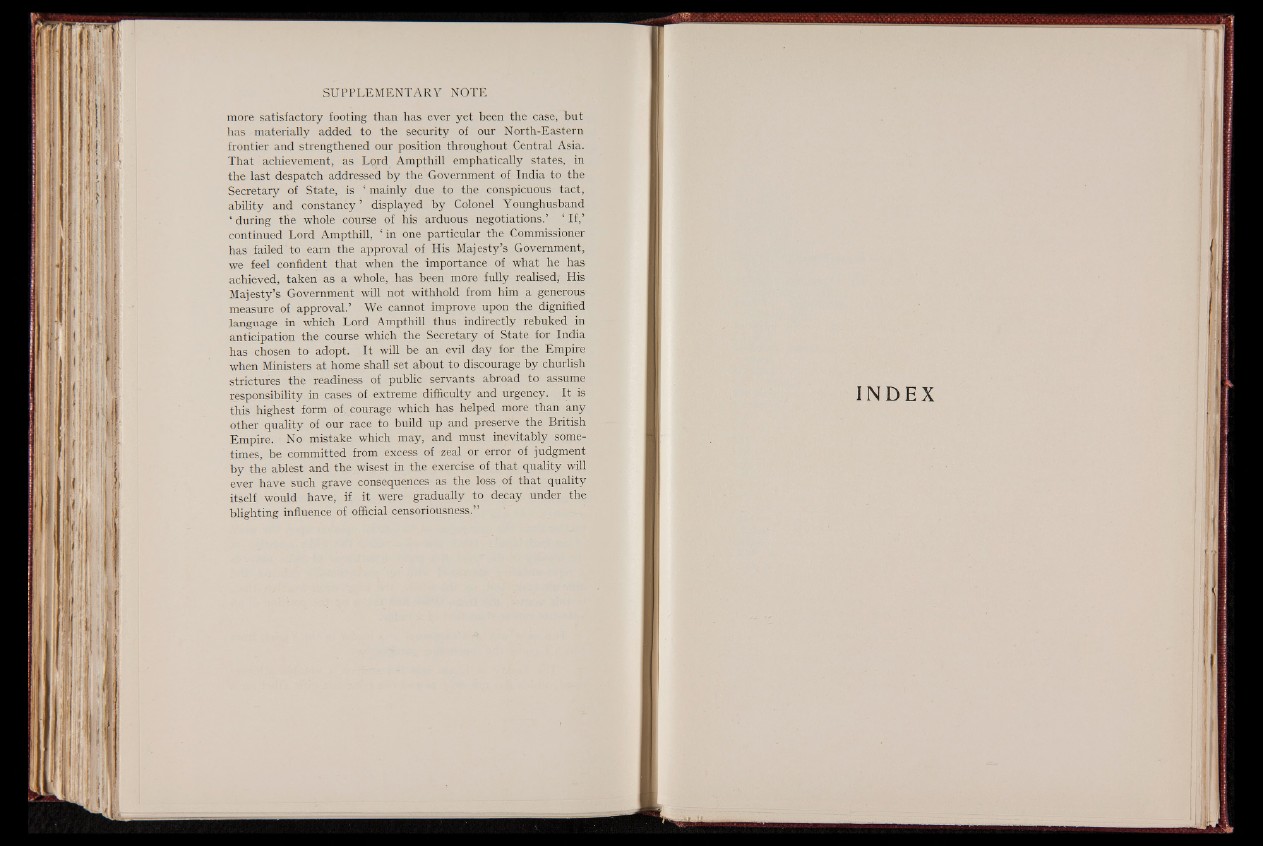
more satisfactory footing than has ever yet been the case, but
has materially added to the security of our North-Eastern
frontier and strengthened our position throughout Central Asia.
That achievement, as Lord Ampthill emphatically states, in
the last despatch addressed by the Government of India to the
Secretary of State, is ‘ mainly due to the conspicuous tact,
ability and constancy’ displayed by Colonel Younghusband
‘ during the whole course of his arduous negotiations.’ ‘ If,’
continued Lord Ampthill, ‘ in one particular the Commissioner
has failed to earn the approval of His Majesty’s Government,
we feel confident that when the importance of what he has
achieved, taken as a whole, has been more fully realised; His
Majesty’s Government will not withhold from him a generous
measure of approval.’ We cannot improve upon the dignified
language in which Lord Ampthill thus indirectly rebuked in
anticipation the course which the Secretary of State for India
has chosen to adopt. It will be an evil day for the Empire
when Ministers at home shall set about to discourage by churlish
strictures the readiness of public servants abroad to assume
responsibility in cases of extreme difficulty and urgency. It is
this highest form o l courage which has helped more than any
other quality of our race to build up and preserve the British
Empire. No mistake which may, and must inevitably sometimes,
be committed from excess of zeal or error of judgment
by the ablest and the wisest in the exercise of that quality will
ever have such grave consequences as the loss of that quality
itself would have, if it were gradually to decay under the
blighting influence of official censoriousness.”